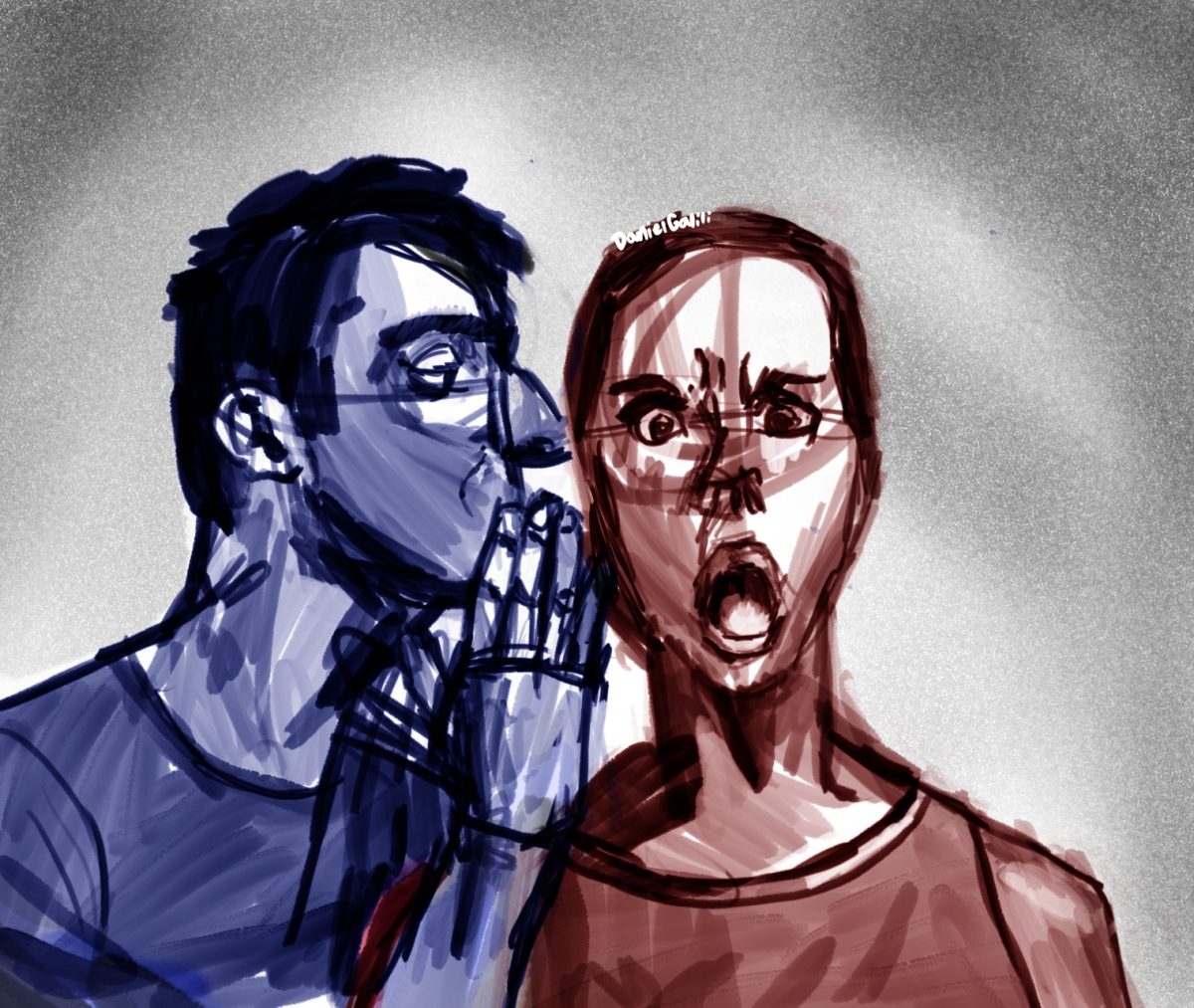Lashon hara, evil speech, more commonly referred to as gossip, is a very difficult prohibition to observe. It feels impossible to avoid it all of the time. It seems like something that everyone struggles with, adults and children alike. I find that understanding why we speak lashon hara and how it harms us helps us avoid it and mitigate its harmful effects.
The Rambam, Moshe Ben Maimon, writes about lashon hara in many places in his book, the Mishneh Torah. In particular, in the section on personal development, he quotes different statements of our sages about lashon hara.
וְעוֹד אָמְרוּ חֲכָמִים שְׁלֹשָׁה לָשׁוֹן הָרַע הוֹרֶגֶת. הָאוֹמְרוֹ. וְהַמְקַבְּלוֹ. וְזֶה שֶׁאוֹמֵר עָלָיו. וְהַמְקַבְּלוֹ יוֹתֵר מִן הָאוֹמְרוֹ:
In addition, the sages said: Lashon hara “kills three [people], the one who speaks it, the one who listens to it, and the one about whom it is spoken. The one who listens to it [suffers] more than the one who speaks it” (Mishneh Torah, Human dispositions 7:3).
The Rambam highlights three parties that are damaged from lashon hara. It is easy to see how וְזֶה שֶׁאוֹמֵר עָלָיו, the one about whom it is spoken, is harmed. Their image is damaged, people could treat them differently, and if they hear about it, they might feel hurt by what people are saying about them.
But how are the speaker and listener harmed? They are not the ones being gossiped about. Why does he use the word הוֹרֶגֶת, killed, to describe the harm? Additionally, the Rambam adds that the listener is worse off than the speaker, how is that possible? The speaker is doing the action, they are initiating the transgression.
Perhaps the term “killed” is clueing us into the aggressive aspect of lashon hara. When a person wants to satisfy their aggressive desires, they could physically attack someone, but this will usually lead to immediate consequences. Therefore, people often utilize verbal assault to take out their aggression on someone else.
When an individual speaks lashon hara, it’s like they are killing one with their words and using it to satisfy their aggression. Furthermore, even a listener can be satisfied by hearing mean things about someone. Additionally, when you gossip about a person’s bad quality or action, you start to view that quality or action as the person.
For example, suppose you tell someone else that so-and-so cheated in a game. In that case, you are solidifying in your head an image that this person’s whole essence is a cheater, and you fail to see any of the other characteristics and actions of this complex person. People tend to paint a caricature of somebody in their heads, with some of their attributes way exaggerated; speaking lashon hara will worsen this effect. This harms you since you aren’t able to judge people properly. Additionally, it is a philosophical distortion of what a person truly is. They are essentially their neshama, soul, not a specific character trait or bad action. Lashon hara ignores that and concentrates on the secondary facets of a person.
This aggressive distortion of the subject of the lashon hara harms both the speaker and listener. But the Rambam says that the listener suffers more than the speaker. How can that be? Speaking is definitely a greater act of aggression than hearing, and the speaker is making an active choice to gossip and distort this person’s image.
Maybe the Rambam is not referring to the harm of the listener versus the speaker, but he is talking about the ability to fix the harm. The first step to doing teshuva (repentance) is always recognizing your sin; only then can you fix the internal imperfection that led to the sin or the negative effects that the sin had on you.
In the case of the listener, it is much harder for him to recognize his mistake because he didn’t do the action. He just heard lashon hara, he didn’t say it! It’s much easier for him to justify himself and resist engaging in the teshuva process. The very cause for our question on the Rambam is the exact reason it’s harder for him to do teshuva. It doesn’t seem like he did anything wrong, certainly not more than the speaker.
Hopefully, going forward we will be able to be aware of the effect that even hearing lashon hara can have on us. Additionally, may we utilize these lessons from the Rambam to try to minimize the lashon hara in our lives.














